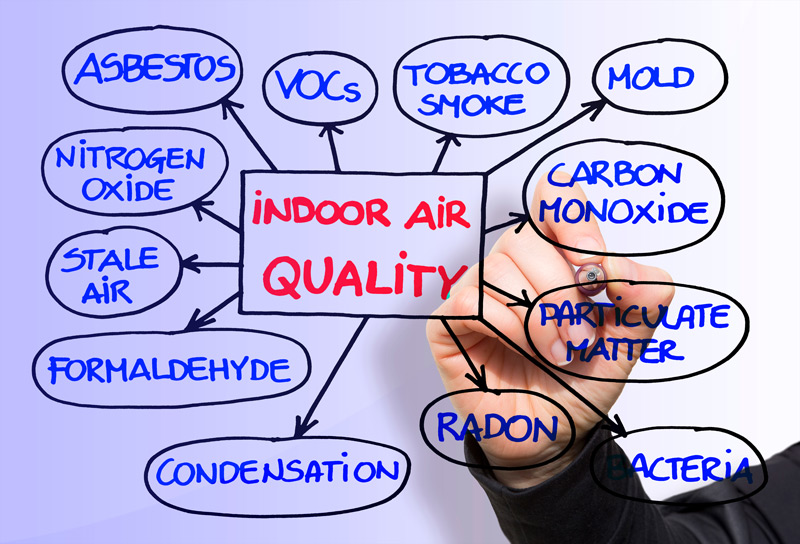Indoor air quality plays a crucial role in our well-being and productivity. Poor indoor air quality can lead to various health issues and can impact our ability to focus. In this blog, we discuss how poor indoor air quality affects your health and productivity. We also discuss ways to preserve good indoor air quality to promote a healthier life .
How Poor Indoor Air Quality Affects Your Health
Poor indoor air quality can result from several factors. This includes inadequate ventilation, high humidity levels, airborne pollutants, and VOCs. Several household products can cause this to occur. Exposure to these contaminants can lead to a range of health issues, such as:
- Respiratory problems like asthma and allergies
- Headaches and dizziness
- Fatigue and difficulty concentrating
- Irritation of the eyes, nose, and throat
- Long-term health effects like heart disease and cancer
These health issues can affect your well-being. It can also hinder your ability to perform daily tasks.
The Connection Between Indoor Air Quality and Productivity
Studies show a strong correlation between poor indoor air quality and decreased productivity. One study focused on employees working in environments with better indoor air quality. Researchers found that they had higher cognitive function scores. Another study found that good indoor air quality could increase productivity by up to 10%. Poor indoor air quality can impact productivity in the following ways:
- Reduced concentration and focus. This is due to discomfort or health issues from poor indoor air quality
- Increased absenteeism as employees may take more sick days. This is due to respiratory problems or other health concerns
- Lower morale and job satisfaction, leading to decreased motivation and engagement
By improving indoor air quality, you can create a healthier and more productive space.
How to Preserve Good Indoor Air Quality
To maintain good indoor air quality, consider implementing the following strategies. Ensure that your home or office has adequate ventilation to allow fresh air in and remove stale air. Use exhaust fans in kitchens and bathrooms to reduce humidity and reduce pollutants. Invest in an air purifier with a HEPA filter to help remove airborne particles. This can include such things as dust, pollen, and pet dander. This can be especially beneficial for individuals with allergies or asthma.
Keep indoor humidity levels between 30% and 50% to reduce mold growth and reduce dust mites. Use dehumidifiers or air conditioners to control humidity levels. Dust and vacuum your space often to remove allergens and pollutants. Use microfiber cloths and a vacuum cleaner with a HEPA filter to capture small particles. Choose cleaning products and household items that emit fewer VOCs. Look for products with low or no VOC labels to reduce indoor air pollution.
Contact Us
By improving your air quality, you create a healthier and more productive environment. If you need help improving your indoor air quality, we are here to help. Contact Thornton Heating Services for all your indoor air quality needs.

